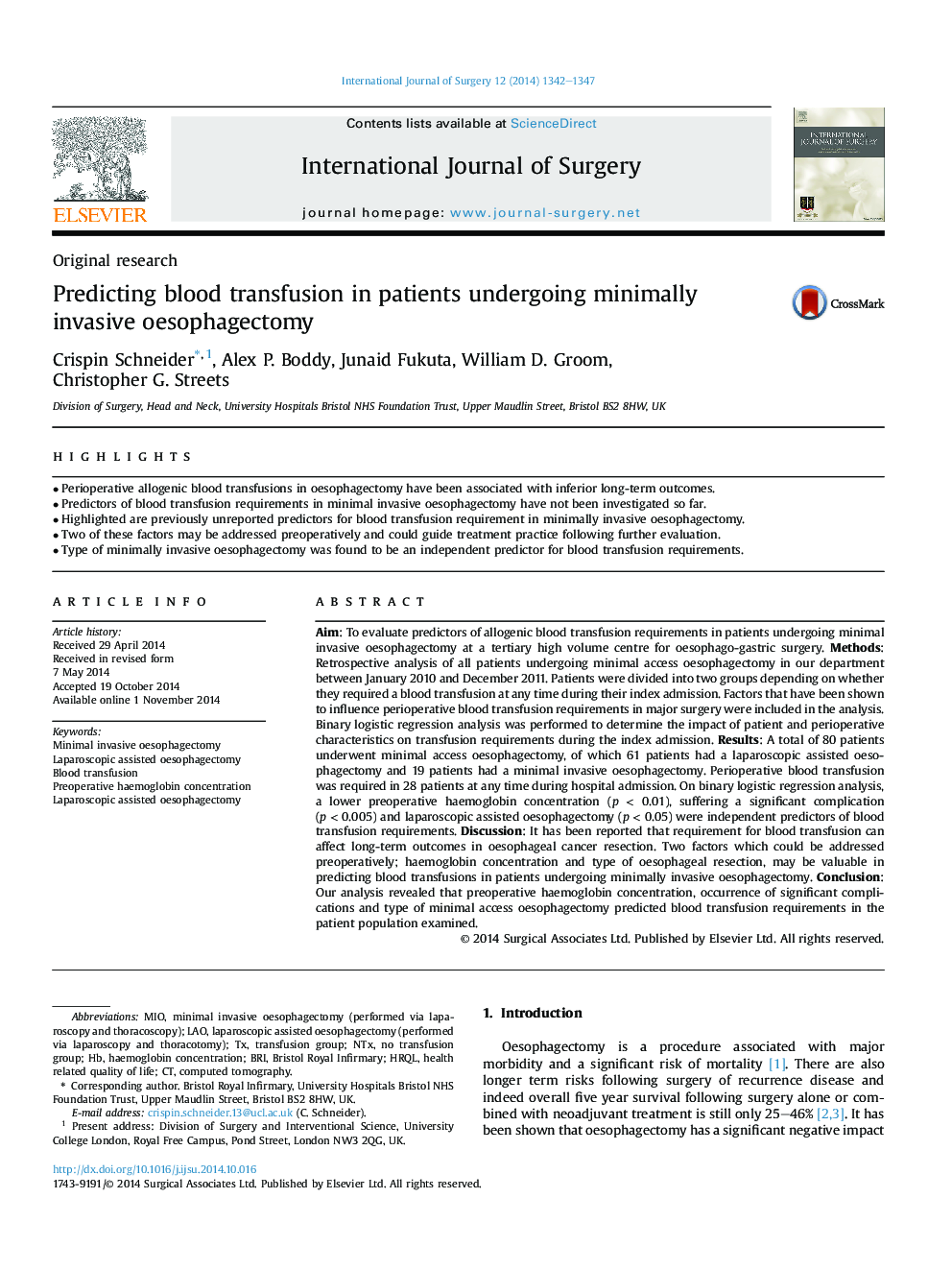| کد مقاله | کد نشریه | سال انتشار | مقاله انگلیسی | نسخه تمام متن |
|---|---|---|---|---|
| 6251835 | 1611983 | 2014 | 6 صفحه PDF | دانلود رایگان |
- Perioperative allogenic blood transfusions in oesophagectomy have been associated with inferior long-term outcomes.
- Predictors of blood transfusion requirements in minimal invasive oesophagectomy have not been investigated so far.
- Highlighted are previously unreported predictors for blood transfusion requirement in minimally invasive oesophagectomy.
- Two of these factors may be addressed preoperatively and could guide treatment practice following further evaluation.
- Type of minimally invasive oesophagectomy was found to be an independent predictor for blood transfusion requirements.
Aim: To evaluate predictors of allogenic blood transfusion requirements in patients undergoing minimal invasive oesophagectomy at a tertiary high volume centre for oesophago-gastric surgery. Methods: Retrospective analysis of all patients undergoing minimal access oesophagectomy in our department between January 2010 and December 2011. Patients were divided into two groups depending on whether they required a blood transfusion at any time during their index admission. Factors that have been shown to influence perioperative blood transfusion requirements in major surgery were included in the analysis. Binary logistic regression analysis was performed to determine the impact of patient and perioperative characteristics on transfusion requirements during the index admission. Results: A total of 80 patients underwent minimal access oesophagectomy, of which 61 patients had a laparoscopic assisted oesophagectomy and 19 patients had a minimal invasive oesophagectomy. Perioperative blood transfusion was required in 28 patients at any time during hospital admission. On binary logistic regression analysis, a lower preoperative haemoglobin concentration (p < 0.01), suffering a significant complication (p < 0.005) and laparoscopic assisted oesophagectomy (p < 0.05) were independent predictors of blood transfusion requirements. Discussion: It has been reported that requirement for blood transfusion can affect long-term outcomes in oesophageal cancer resection. Two factors which could be addressed preoperatively; haemoglobin concentration and type of oesophageal resection, may be valuable in predicting blood transfusions in patients undergoing minimally invasive oesophagectomy. Conclusion: Our analysis revealed that preoperative haemoglobin concentration, occurrence of significant complications and type of minimal access oesophagectomy predicted blood transfusion requirements in the patient population examined.
Journal: International Journal of Surgery - Volume 12, Issue 12, December 2014, Pages 1342-1347
